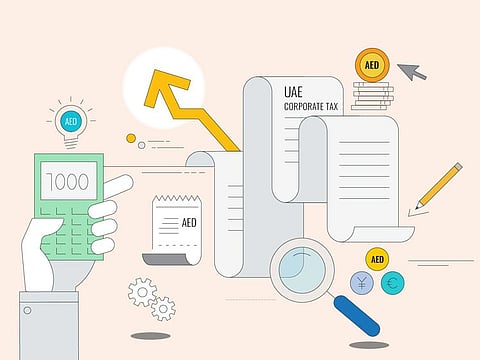UAE Corporate Tax: Business need to be extra careful with transfer pricing documentation
For a start, get all details done right in Transfer Pricing Disclosure Form

UAE’s businesses are at an inflection point - the transition into a tax reporting and compliance regime is raising apprehensions about potential penalties in the following seven years for errors committed during submissions.
One such area relates to the transfer pricing documentation. Each company is carrying a different understanding about the content of this documentation and the timelines for submission to the Federal Tax Authority (FTA).
The FTA has outlined five categories of transfer pricing documentation that should be prepared for each tax year.
Transfer Pricing Disclosure Form
The first and foremost category is the Transfer Pricing Disclosure Form (TPDF), which is similar to a declaration and covers the details of transactions as well as arrangements with related parties and/or connected persons.
Even though the TPDF would not include detailed benchmarking data, the transfer pricing method used to determine the arm’s length value needs to be declared forthwith. The form needs to be submitted along with the corporate tax return i.e. within 9 months from the end of the financial year. It is likely to be mandatory for all taxpayers, though a materiality threshold may be prescribed in due course.
Master file
The determination of ‘arm’s length’ price factors in the Functional, Asset, Risk (FAR) analysis between transacting parties. Before the international cooperation under the OECD framework, the jurisdictional tax authority of one country could not validate that a multinational group has not submitted a varying version of FAR analysis in other countries.
A master file - common across tax jurisdictions - provides a high-level overview of a multinational group’s global operations, transfer pricing policies, information on key value drivers, and a global allocation of income and economic activity. A master file is aimed to explain the group's transfer pricing policies/practices in the global economic, legal, financial, and tax context.
Local file
A local file – prepared by each member of a multinational group for their national/regional tax authority - contains detailed information on the management and operations of the local entity. It also includes detailed comparability and functional analysis of ‘related party transactions’ to demonstrate the compliance with arm’s length principles.
Certain transaction categories are allowed to be excluded from a local file; for instance, transactions between two UAE companies taxable at 9 per cent, or transactions with individuals acting as if independent to the company. The Federal Tax Authority has however clarified that such transactions should still be undertaken on an arm’s length basis.
A master file and local file should be maintained contemporaneously by member companies of a multinational group with annual revenue of Dh3.15 billion or more. Or where the UAE company’s annual revenue is Dh200 Million or more. As FTA has 7 years to audit the tax submissions, the UAE regulator may ask for submission of the documentation within 30 days, or by a longer period of time if agreed by the FTA.
Country-by-country report (CbCR)
The UAE introduced CbCR in 2020 itself. It is applicable on multinational groups - headquartered in the UAE - with consolidated annual revenue of Dh3.15 billion or more.
The CbCR - a standardised report - includes list of member companies along with main business activity, country of tax registration for each member company, global allocation of income, taxes paid, and certain indicators of the location of economic activity among tax jurisdictions in which the multinational operates.
Additional supporting information
In addition to the above four categories of documentation, the UAE corporate tax empowers FTA to request for additional information and documents to determine the compliance with arm’s length principle.
It is important to note that even where a master file/local file is not mandatory – annual revenue less than Dh200 million – a taxpayer should maintain reasonable records to support the arm’s length nature of transactions with related parties and/or connected persons. The FTA can request such information to be produced within 30 days or such extended period.
Businesses should fortify their reporting and documentation process to minimise the anxiety in transitioning to the new tax regime.
Sign up for the Daily Briefing
Get the latest news and updates straight to your inbox




